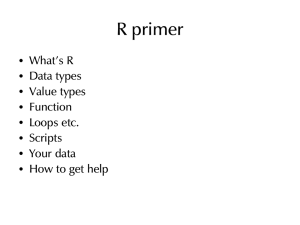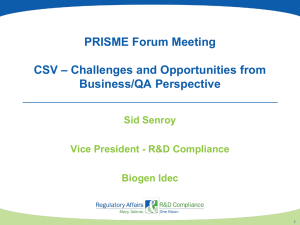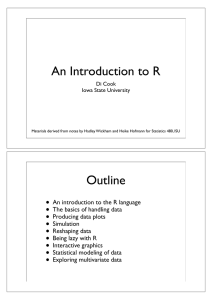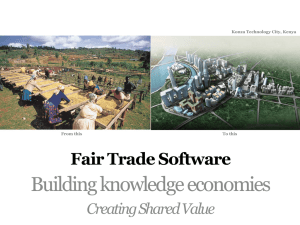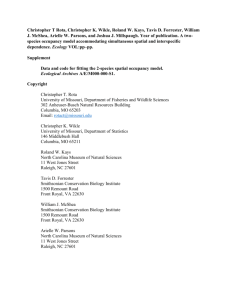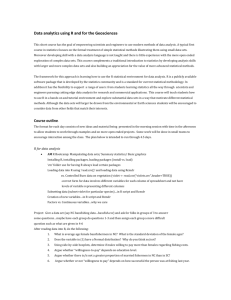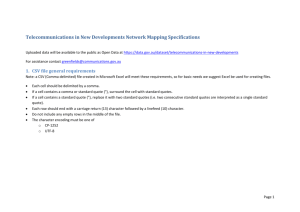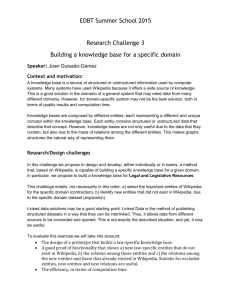Concept note - Civil Exchange
advertisement
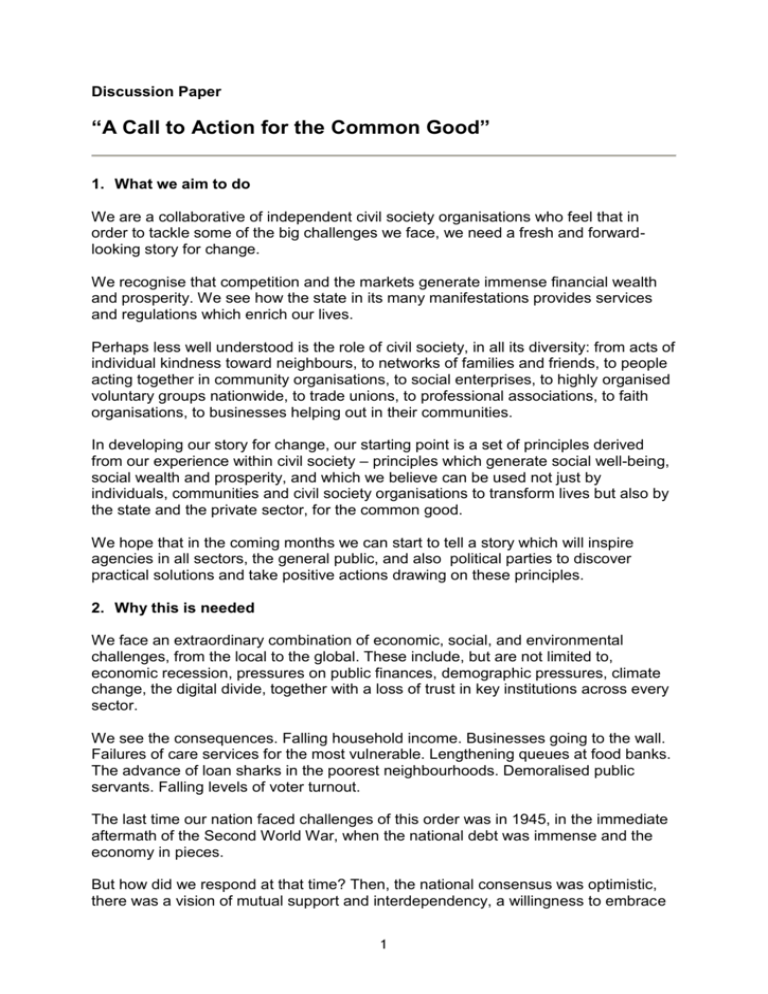
Discussion Paper “A Call to Action for the Common Good” 1. What we aim to do We are a collaborative of independent civil society organisations who feel that in order to tackle some of the big challenges we face, we need a fresh and forwardlooking story for change. We recognise that competition and the markets generate immense financial wealth and prosperity. We see how the state in its many manifestations provides services and regulations which enrich our lives. Perhaps less well understood is the role of civil society, in all its diversity: from acts of individual kindness toward neighbours, to networks of families and friends, to people acting together in community organisations, to social enterprises, to highly organised voluntary groups nationwide, to trade unions, to professional associations, to faith organisations, to businesses helping out in their communities. In developing our story for change, our starting point is a set of principles derived from our experience within civil society – principles which generate social well-being, social wealth and prosperity, and which we believe can be used not just by individuals, communities and civil society organisations to transform lives but also by the state and the private sector, for the common good. We hope that in the coming months we can start to tell a story which will inspire agencies in all sectors, the general public, and also political parties to discover practical solutions and take positive actions drawing on these principles. 2. Why this is needed We face an extraordinary combination of economic, social, and environmental challenges, from the local to the global. These include, but are not limited to, economic recession, pressures on public finances, demographic pressures, climate change, the digital divide, together with a loss of trust in key institutions across every sector. We see the consequences. Falling household income. Businesses going to the wall. Failures of care services for the most vulnerable. Lengthening queues at food banks. The advance of loan sharks in the poorest neighbourhoods. Demoralised public servants. Falling levels of voter turnout. The last time our nation faced challenges of this order was in 1945, in the immediate aftermath of the Second World War, when the national debt was immense and the economy in pieces. But how did we respond at that time? Then, the national consensus was optimistic, there was a vision of mutual support and interdependency, a willingness to embrace 1 positive change. In the face of adversity, came the NHS, universal pensions, child benefit, national parks, a national theatre. Today the consensus seems predominantly negative. There seems to be a general acceptance that nothing can really change, and the best we can hope for is a return to business as usual, but also a decline: fewer jobs, reduced services, more people left behind. It seems our horizons are shrinking. Worse still, this negative consensus is producing a culture of blame, a tendency to demonise those on benefits or immigrants, inter-generational tensions, a growing mood of intolerance and social division. We are not all in this together. We are divided by economic and social inequality, and far too many people feel powerless, they feel that they are ‘done to’, that they are treated as the problem, and not the solution. They find it difficult through traditional politics to make their voices heard. So, what can be done about this? We believe that today, just as in 1945, there are alternatives, that positive change is possible, but will require a profound and bold set of responses, in which individuals, civil society institutions, businesses, government, political parties all have a role to play. We believe civil society has a pivotal role here. It can mobilise transformative forces within society for the common good. Faith, trust and participation in many national institutions has been declining sharply, particularly amongst the young, from national politics, to religion and trade unions. Civil participation remains strong, however, and we can help to rebuild that sense of engagement with society from the bottom up. Civil society can also provide principles for generating social well-being that could help the state and the business sector operate more effectively. The state, local and central, often turns to business to provide services more efficiently through competition. However, the banking crisis and tax avoidance raise questions in many minds about whether market principles driven by short term interests are too dominant a force in our society. Civil society can help the state and commercial agencies not just to do the same things more efficiently but to remodel what they do altogether in order to transform lives. Towards a story for change for the common good We want to open a national conversation about the possibility for positive change for the common good and the principles that drive it, seeking to ‘make hope possible, rather than despair convincing’. Like all ambitious endeavours, it is necessary to make a start somewhere, and so we begin with a few short observations and principles. We recognise that these will need considerable debate and refinement. 2 We don’t have to start from scratch. We recognise that many people are already working together for the common good and helping to build a better society through their efforts – we glimpse it all around us, in all sectors. We know of commercially successful businesses which operate ethically, exemplary examples of public service, inspiring charities and social enterprises, citizens accomplishing extraordinary things. Our story for change needs to explain how we can learn from all these glimpses of good practice and make them universal, not exceptional. In that way we can build that better future. We believe there are certain principles, which are strong within the best of civil society, and which are capable of being much more widely adopted, which can be the drivers of positive change: Mutual-interest, solidarity, and the connected society There is a strong belief by many in the power of self-interest and competition. But we also recognise that self interest can lead to mutual interest – involving not just individuals but also families, friends, neighbours, wider communities. This equally applies to institutions and businesses. The more we build networks and relationships, and the move beyond narrow functional or commercial transactions, the more we produce solidarity and create a potent force for common benefit and wider prosperity. Shared responsibility, agency,and ownership We want to see a culture of passive individual entitlement replaced by a culture of active common responsibility. But this cannot be imposed, and so it is necessary to create the conditions whereby indidivuals and organisations develop agency – are able to take actions on their own terms – individually and in association, to contribute to the common good. This implies for example a widening of ownership, more user control, a bigger say for employees, devolution to the local , public services built around people not bureacracy, and institutions operating on a human scale. Stewardship and investment in early action for the common good It is not acceptable that so many live in poverty, it is not acceptable that resources are so often wasted. We want to see a fresh approach to national stewardship, with measures to increase social economic and environmental assets, not merely consume them, with an ethical framework for businesses and the banking sector, with openness at its heart, with early action intervention to prevent problems arising in the first place, and with welfare spending designed as an investment for the common good. A society operating according to common good principles doesn’t just happen. It has to be made and continually sustained. It is in the interests of all to undertake that task, not as a peripheral activity, but rather to weave these principles into their core purpose and act accordingly. 3 3. Next Steps This discussion paper is only a first step. The next step will be to test our preliminary ideas with a wide sample of stakeholders – individuals, community groups, faith bodies, trade unions, business leaders, people working in local or national government, for example. Towards the end of this year, we will then assess whether or not there is sufficient potential for this exercise to proceed. Is there a story to tell which is sufficiently powerful and persuasive and commands widespread appeal? Can we see the possibility of translating ideas into policy and practice? If the answer is yes, then we would seek to build a vibrant and credible campaign to generate public momentum, to encourage institutions across all sectors, and the political parties, to embrace the possibility of change and take practical steps accordingly. Lucy de Groot CSV July 2013 On behalf of a working group including: Steve Wyler Caroline Slocock Joe Irvin Charles Wookey Oonagh Aitken Duncan Tree Locality Civil Exchange NAVCA Catholic Bishops’ Conference, England & Wales CSV CSV Informed by the participants at the St George’s House Windsor event on “Civil Society and Austerity” For further information please contact: Duncan Tree, Head of Policy, CSV dtree@csv.org.uk Diana Browne, CE Office, CSV dbrowne@csv.org.uk (020 7643 1360) 4
![[#DTC-130] Investigate db table structure for representing csv file](http://s3.studylib.net/store/data/005888493_1-028a0f5ab0a9cdc97bc7565960eacb0e-300x300.png)

